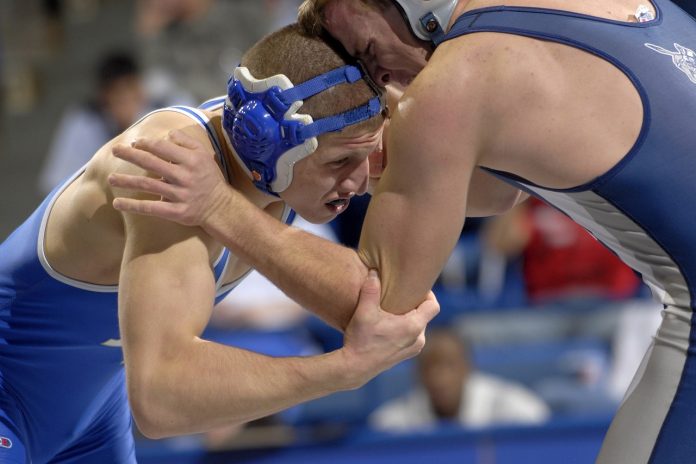
I’m a high school wrestling coach.
From a clinical viewpoint should protein supplements (such a whey) be recommended to high school athletes that are lifting weights and trying to get stronger? I want them to get the most out of their time and effort, but also do not want to encourage something that a dietitian would say is actually not as effective as simply getting protein from healthy foods and getting a good night sleep.
Thanks for asking! Having a family member who was a wrestler and working with college bodybuilders, protein supplements have been a frequent topic. For high school student-wrestlers, protein supplements are not necessary and are an added expense they could be spending on real food. The protein requirements of teenage boys 14 to 18 years of age is 52 grams (0.8 grams of protein per kilogram of body weight) which is equivalent to three 8 ounce glasses of milk and 4 ounces of meat, poultry, eggs or fish. For most high school students, 4 ounces would be a serving of meat at 1 meal. Your students are probably eating more than 4 ounces of meat, poultry, eggs or fish a day. This is assuming that your wrestlers are not trying to make weight in a lower weight class to wrestle or purging/dieting to lose weight.
Compare this to an adult male (19 to 30 years of age) who requires 56 grams of protein a day or another 1/2 ounce of meat, poultry or fish above what a teen boy would need.
Whey protein isolate is a clear liquid byproduct of cheese processing from milk and a good source of complete protein that contains all 8 essential amino acids for muscle building. Whey also contains a low amount of lactose, the sugar in milk. If any of your students have lactose intolerance or a milk allergy, whey protein would not be recommended.
As you are aware, a muscle will get bigger when the muscle is worked beyond its current capacity by doing more sets and reps on various muscle groups (arms, legs, back, and torso). Yes, the body needs protein to support this increase in muscle mass and teen wrestlers produce testosterone which supports muscle development, but taking protein supplements is unnecessary to achieve the desired muscle size for wrestling. There is a point beyond which having a huge muscle mass is advantageous in high school wrestling. Wouldn’t you agree?
Other sports such as football or bodybuilding may require a higher protein intake, but again that additional protein (1.5 grams protein per kilogram of body weight) can be achieved thru eating real food.
High school athletics are a great opportunity to form lifelong exercise habits. Unfortunately, word of mouth and the popular press is not an accurate source for nutrient needs of athletes. Have you thought about asking a local dietitian who works with athletes to donate her/ his time talking to you high school athletes? Include question and answer time. March is National Nutrition Month and a time when many dietitians volunteer in schools to speak to students. Search for a dietitian who specializes in sports nutrition in your area and call them.
Love the point of getting a good night’s sleep. Every teenager needs a good night’s sleep for physical growth and learning.



